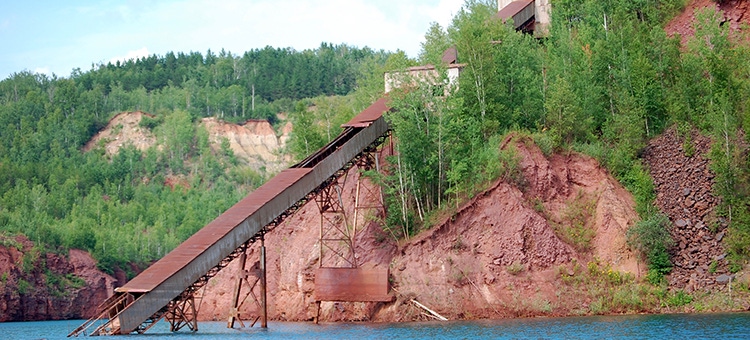Hill Annex Mine State Park permanently closes, paving way for mining operations to resume

Courtesy: Minnesota Department of Natural resources
After being established as a state park 36 years ago, Hill Annex Mine State Park will once again be used for mining – pending permit approval – meaning the area will be closed to visitors for the foreseeable future.
The announcement came from the Minnesota Department of Natural Resources (DNR) on Thursday, saying Hill Annex in Calumet would no longer be recognized as a state park. With its state park status gone, the land will once again be open to mining operations, something the DNR said is the purpose behind the change. The 625-acre plot hasn’t seen mining since operations ceased in 1978, but now the site will be used for scram mining, pending permit approval.
The DNR touts the benefits of the change, stating that mining operations would positively impact the local economy and Minnesota’s public schools.
“Over its 60-year history, Hill Annex Mine produced 63 million tons of iron ore and was the sixth largest producer in the state,” Ann Pierce, director of the DNR’s Parks and Trails Division, said. “Then it served generations of visitors as a small state park and helped tell our mining history. Now we are evaluating proposals to resume mining, which would contribute to local economies and to Minnesota’s public schools.”
Legislation for Hill Annex to become a state park was passed in 1988, with legislation specifying mining could return to the area in the future. The former state park operated on School Trust Lands, including the stockpile and inground materials within the area. The DNR said because of this the resumption of mining would help public schools through the deposit of state mineral lease rental and royalty payments into the Permanent School Trust Fund.
According to the agency, the surface stockpiles and tailings basins at Hill Annex are under lease, and the developer applied to the DNR in December 2023 for a scram mining permit. If permits are approved, mining could begin with site preparation in 2024 and operations in 2025.
Should mining operations cease again, the site will be evaluated for future uses.